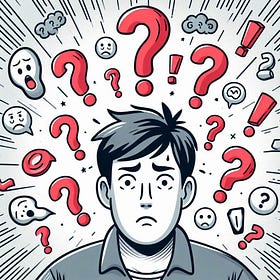The Road to Serfdom, Session 3: There is No Common Good
Exploring why the concept of a collective good is so alluring.
Is there really no common good? Among politicians and academics, claiming to know the common good is as American as apple pie. Before we proceed, Hayek urges us to contemplate the idea of the common good at a societal level. He is not denying that you experience a common good in your family or business.
Let's begin by reflecting on one of Hayek's potent admonitions:
The effect of the people’s agreeing that there must be central planning, without agreeing on the ends, will be rather as if a group of people were to commit themselves to take a journey together without agreeing where they want to go: with the result that they may all have to make a journey which most of them do not want at all.
When you support collectivist action without acknowledging its limitations, be prepared for a collision with reality.
Before diving into Hayek's arguments, let's explore why the concept of a collective good is so alluring.
We all have moments when our individual interests fade into the background. When our internal chatter subsides, and we find harmony with others, paradoxically, we feel most authentic. We crave more of that.
While exploring Bonds That Make Us Free, we observed the immense unhappiness that arises from viewing people as objects, separate from us, and inferior to us.
Do you remember the crying baby story that was told at the start of Bonds? Gripped by destructive thinking, it can sometimes feel like there are conflicting interests, with only one winner.
Bonds That Make Us Free Session 1: Our Humanity is on the Line
I see things I can do. Things I should do. Things I desire to do. What does the responsive way feel like? You know. — The Arbinger Institute
That's a terrible feeling, isn't it? We studied and were touched by Bonds because that is not how we want to live.




